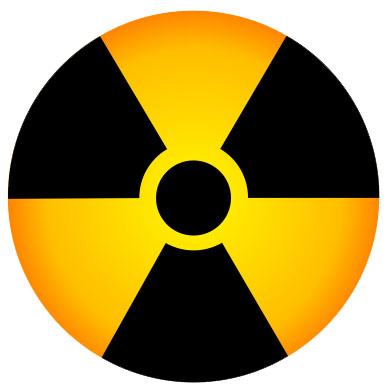 Vulcan GMS offers many different radiation material shielding options. Radiation shielding is a key element of many different types of medical, security and inspection equipment.
Vulcan GMS offers many different radiation material shielding options. Radiation shielding is a key element of many different types of medical, security and inspection equipment.
Shielding keeps the radiation contained or acts as collimation to focus the radiation where it is needed. Many people think of only lead when it comes to shielding; but there are other options that you may want to consider. Although there is no perfect solution that has the exact characteristics, each of these below have benefits and draw backs that should be considered.
Lead (Pb)
Lead is a great material offering traditional shielding. This metal is malleable for good forming characteristics. Lead can be poured / cast / die cast, extruded, machined, spun, fabricated, welded and more. Lead can be alloyed with other metals such as antimony, tin, and bismuth for different mechanical properties to improve strength. Lead by itself is very soft.
Lead is a toxic metal and proper handling is required. However there are options such as paint coatings to aid with contact and recycling programs to help once the product is at end of life. Lead is the cheapest of the shielding options and with a density of 11.35 g/cc, it is a great solution. As a point of reference, the LME price is roughly $1.10 **per pound.
Tungsten (W)
Tungsten is a sintered metal, which means it starts as APT powder that is pressed under extreme heat and temperature to form rough oversized blanks. These blanks will be very rough and typically all surfaces are machined or ground or EDM cut. Tungsten is an extremely hard metal. It can be very difficult to work with and it is very hard on cutting tools.
Tungsten is non-toxic. However the cost of tungsten on the LME is roughly $25.00 ** per pound base cost, which is higher than other options. Considering the cost of tungsten, strategic use of the metal is best option for your shielding needs.
Tungsten is roughly 40 percent more dense at 19.3 g/cc than lead so it offers superior shielding. This metal is typically blended to 90%, 92.5%, 95% or 97% and mixed with nickel/copper or nickel/iron. Tungsten does not have all the process capabilities of lead and other metals, so finished shapes need to be machined to the desired shapes. Tungsten is also available in foil and this foil is rigid and can work well in detector applications when compared to lead.
Molybdenum (Mo)
Molybdenum is a powder metal just like tungsten and needs to be formed under extreme heat and pressure. Much like the process with tungsten, blanks are oversized and this metal can be machined, ground or EMD cut. Moly is also a very hard metal and very difficult on cutting tools.
Moly is non-toxic and the raw market price of metal is roughly $11.00 **per pound on the LME. The density of moly is 10.28 g/cc and it offers an option to tungsten and lead. While the density of moly is similar to lead, its mechanical properties are far greater. Moly is also available in foil similar to that of tungsten. The sheets can be very thin at .010″ or below.
Tin (Sn)
Tin is mechanically similar to lead and it can be cast, poured, die cast, extruded, stamped, spun, machined, etc. The melting point is rather low and similar to lead; however the density is 7.365 g/cc which is less than lead.
Tin is non-toxic and the market base price is roughly $11.70 ** per pound on the LME. Tin is a good alternative to lead because all of the same manufacturing processes used in lead can be used to produce tin products. Depending on the customer’s needs, tin also comes in sheet and foil. Tin also can be blended with lead or bismuth for some different alloy options.
Bismuth (Bi)
Bismuth can be cast, poured, machined, fabricated, etc. The metal is harder to work with than tin, but with a density of 9.78 g/cc it offers another option in the non-toxic category of shielding metals. The metal is sometimes used alone for shielding but it can also be blended with tin to offer a nice working alloy that can be cast or machined. The market base price is roughly $8.63 ** per pound on the LME.
High Density Plastics
High density plastics are newer to the market. In about the last 15 years, the development has become applicable. These plastics can have densities up to 11g/cc and nearly any density below that. These plastics can use a few different metals in them to achieve the density. Those metals include tungsten, bismuth, steel, brass and a few others.
These plastics are typically molded under pressure so injection molding or extrusion to keep the suspension of metal correct. There are some other newer options with lower densities that do not need pressure. These plastics are non-toxic however the base material prices range from $30 to $80 per pound based on the specific blend. In these types of plastics, low weight and high volume is typically the right recipe.
Other
Vulcan GMS offers all these materials and others such as: brass, steel, copper and other manufacturing metals and plastics. We can work with you on any specific questions on these materials to aid in your design to find the best option to meet your goals including cost, process, material, etc. In addition, there are other materials and plastics (or combinations) that can be used to complete your shielding needs. Please contact us with any questions or to discuss your application.
** LME stands for London Metals Exchange and these are rough numbers intended to be a point of reference for comparing one metal to another from a relative cost stand point. LME prices are not what the metals cost on the market.

